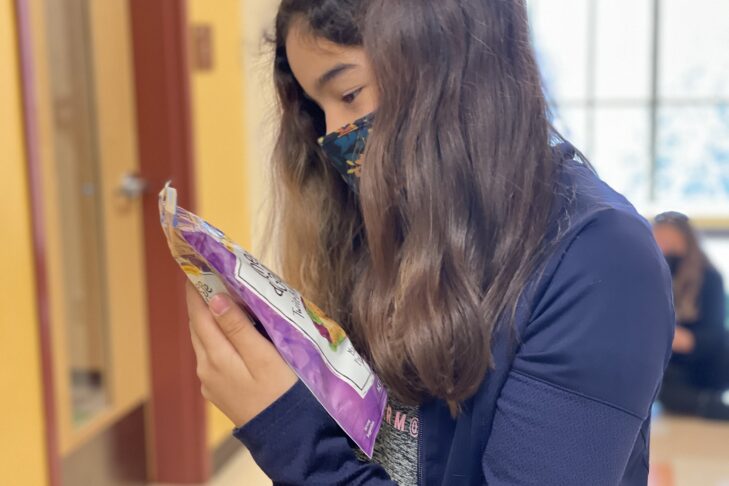“Seven days you shall eat unleavened bread; on the very first day, you shall remove leaven from your houses…” (Exodus 12:15).
If you had walked down the halls of The Rashi School this past week, you would have seen giant bins full of Passover temptations: cereal, oatmeal, crackers. Why? One of the customs associated with Passover is to search for, collect, and either destroy or donate chametz, foods that are not eaten during Passover which typically include leavened bread or any food that contains wheat, rye, barley, oats or spelt, to individuals in need.
To honor the holiday of Passover, and help those in need, Rashi has collected food as a Passover “Raid Your Pantry” drive. Grade 5 students have been studying food insecurity and took a leadership role with this food drive. They sorted the donations and checked for expiration dates, nutritional value, and the physical condition of the items. Each student treated the task with kavod (respect), attention, and caring, working as a team.
Dean of Jewish learning Rabbi Sharon Clevenger shared, “The Passover Hagaddah says, ‘Let all who are hungry come and eat.’ At Rashi, we pride ourselves on answering the calls of our Jewish tradition to bring tzedek, justice, into the world. If Passover invites the hungry to eat, we feel compelled to make that possible.”
Throughout this year Rashi has been connecting our celebration of Jewish holidays such as Sukkot, Chanukah, Purim, and now Pesach, with attention to our local community, working with nonprofit partners to support those in need. Rabbi Clevenger explained: “Our holidays celebrate all that we have, and so we feel compelled to share our bounty. Food drives are powerful and concrete ways to help our students understand and address the fact that there are people in need living in our communities.”
According to the Greater Boston Food Bank, as a result of COVID-19 and its economic pressures, Eastern Massachusetts is seeing a surge in need, with one in eight individuals now food insecure. And food insecurity has drastically increased among children: one in five children live in a home that is food insecure, an increase of 117%.
Collecting food for those in need is one meaningful way to celebrate the holiday of our redemption and freedom by being more attuned to those living in the greater community who don’t have all the food they need and deserve.
This food drive is about more than boxes of cereal. Rabbi Clevenger reflected: “The year of the pandemic has given us more time to look inward, to evaluate our lives, all that we have and all that we have lost. But it has also pushed us to look out at the world in new ways. We have seen more people struggle, and we have seen the struggles of people more clearly. We have also been asked to consider whether we can take some of what we have and what we value so much and share it with others. These extra food and supply collections focused on serving folks who don’t have all that they need will hopefully serve as a bridge. Not only should I share my material goods, but I should work to share my privileges with those who do not yet have what they need.”
This post has been contributed by a third party. The opinions, facts and any media content are presented solely by the author, and JewishBoston assumes no responsibility for them. Want to add your voice to the conversation? Publish your own post here. MORE


